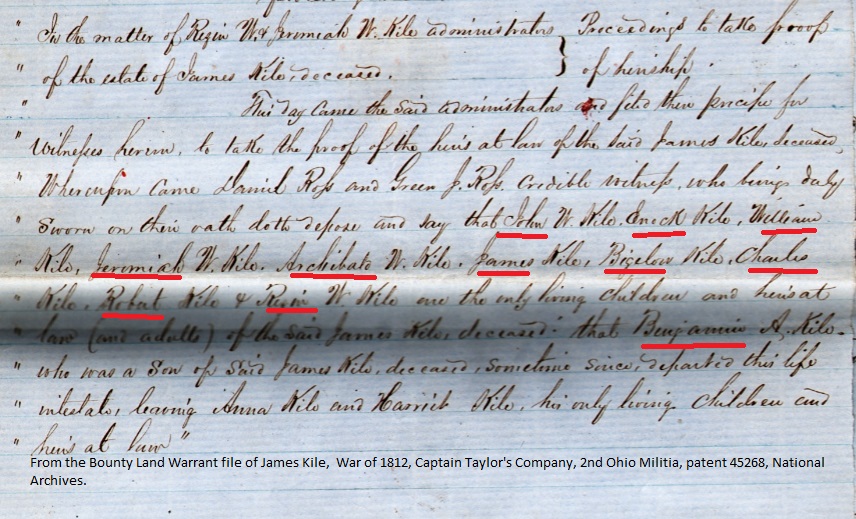Records of War of 1812 Bounty Land Warrants can be a genealogical gold mine. The document illustrating this post comes from the surrendered military bounty land warrant file for James Kile of Mercer County, Illinois.
Fortunately for the genealogist, James died after he received the warrant and before anything could be done with it.
Consequently it became a part of his estate and had to be settled by his heirs. One little interesting thing about James. He had 11 sons who lived to adulthood.
Their names are spelled out in this affidavit made out by the administrator of James Kile’s estate. The sons are all named:
- John W. Kile
- Enoch Kile
- William Kile
- Jeremiah W. Kile
- Archibald W. Kile
- Jame Kile
- Bigelow Kile
- Charles Kile
- Robert Kile
- Rezin W. Kile
- Benjamin A. Kile
Benjamin died while his father’s estate was being settled.
This document does not provide evidence that James Kile had no daughters. It is possible that he did–but if he did, they must have predeceased him and left no descendants of their own. If they had left descendants, those descendants would have been heirs of James Kile and would have been listed in this document. It possible that James had daughters who died as young children.
There’s a reason that it was not stated that these eleven sons were children of James and his wife. They very well could all have been Elizabeth (Wiggins) Kile’s children. It is just that this document by itself provides no evidence of that. We’ll have to use other records to determine if it reasonable to conclude that James Kile was married only once.
But it’s still an interesting document?
Eleven sons? That’s a lot.

2 Responses
That is quite a few boys. At least there was plenty of help on the farm. They must have finally given up on having a girl . But there could be several reasons like u pointed out as to no mention of daughters. Maybe there wasn’t enough property to go around.
In the order finding the heirs, all the children would have to be listed no matter their gender. A will can list whatever children a parent wants, but court orders listing heirs need to list them all.